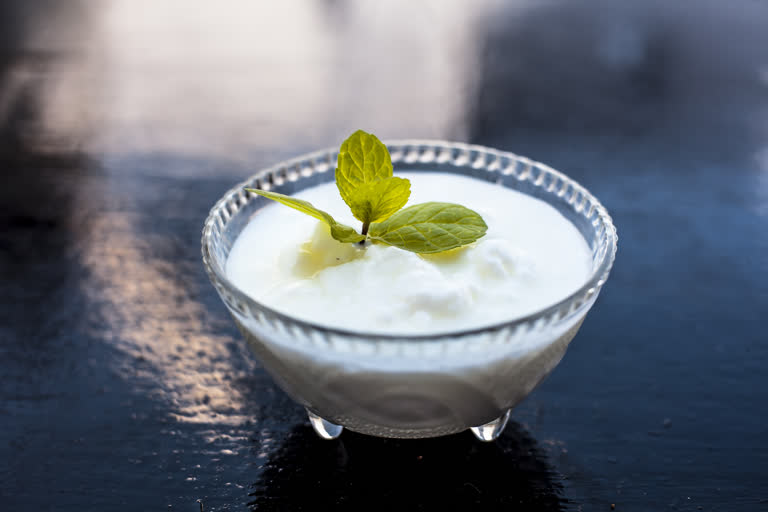Curd is not just good in taste, but also has many beauty and health benefits. It is an excellent probiotic, which improves digestion and additionally strengthens teeth and bones. Apart from being highly beneficial for intestinal health, consumption and external use of curd is also known for improving the skin and hair quality as well as texture. However, overconsumption of curd can also harm our health. Therefore, let us have a look at the nutrients and some more advantages and disadvantages of curd.
Treasure Of Nutrients
Curd is not only easy to digest but also aids in weight loss. It contains almost all of the essential nutrients such as calcium, vitamin B2, vitamin B12, potassium, magnesium, protein, etc.
Per 100 grams of curd consists of 98 calories, 4.3 grams fat, 17 milligrams cholesterol, 364 milligrams sodium, 104 milligrams potassium, 3.4 grams carbohydrates, 2.7 grams sugar, and 11 grams protein.
Advantages Of Curd
- Curd is probiotic, containing good and required bacteria, which improves the gut and intestinal health. Regular consumption of curd provides relief in digestive problems including constipation and it also strengthens the digestive system.
- Curd is considered a special source of calcium. According to the United States Department of Agriculture, 250 grams of curd contains 275 milligrams of calcium. Therefore, if we consume 250 grams of curd every day, our bone strength and density will be maintained.
- The live bacteria present in curd also help in fighting the infectious germs of certain diseases.
- Researchers at the University of Vienna, Austria, say that eating 200 grams of curd per day promotes immunity.
- The results of research conducted by the American Heart Association have revealed that curd intake usually reduces the problem of high blood pressure. The special type of protein found in curd controls high blood pressure and also keeps the heart strong.
- For women, curd also protects against vaginal infections. Lactobacillus acidophilus bacteria produce hydrogen peroxide in the body, which helps eliminate the infection.
- Lactose Intolerant i.e. people who have difficulty in digesting milk. Such people can consume curd to get the required nutrients and protein.
- curd is low in calories and fat. The calcium present in it prevents the formation of cortisol in the body which leads to weight loss.
- curd is also good for pregnant women. It helps in controlling the blood cells and hemoglobin of pregnant women.
- Curd naturally improves dry skin and alleviates the problem of acne. curd contains lactic acid, which helps the skin exfoliate and helps deal with acne marks.
- The lactic acid present in curd provides a lot of nutrients and minerals to the scalp, making the hair thick and shiny. It also acts as a natural conditioner for hair, which is why it is an active ingredient in several hair packs.
Disadvantages Of Curd
Sometimes due to an illness or some other health condition, consumption of curd can be harmful to health. Some of those conditions are:
- According to the Physician Committee for Responsible Medicine, a sugar called galactose is found in curd, which is made from lactose. This can increase the risk of having ovarian cancer.
- People suffering from joint pain and arthritis should avoid consuming curd. However, if you want to have it, you can consume it at a normal temperature during day time.
- Sometimes, overconsumption of curd hinders the absorption of iron and zinc from the foods. Therefore, one must consume curd in moderate quantities only.
Therefore, consumption and external application of curd benefits our health, hair, and skin in various ways. But one must remember that it should be consumed in a moderate amount only, as an excess of anything is harmful to our body. If you are suffering from an illness or any health condition, consult your dietitian or nutritionist to know if you can consume it or not and in what quantity.
